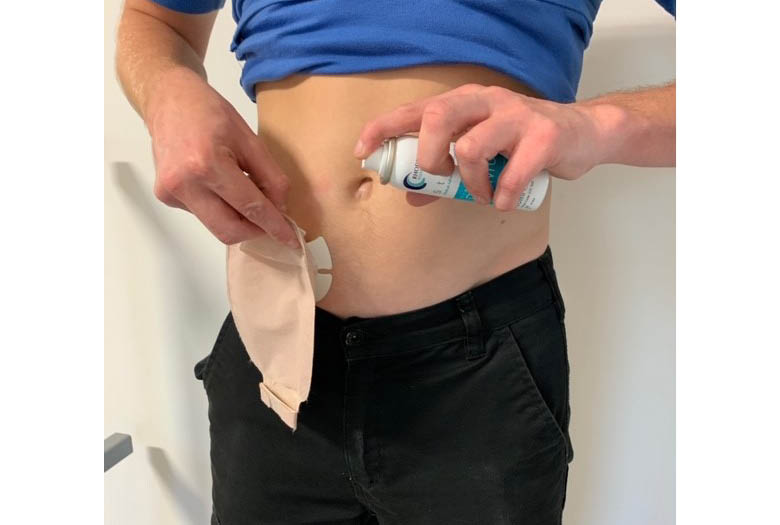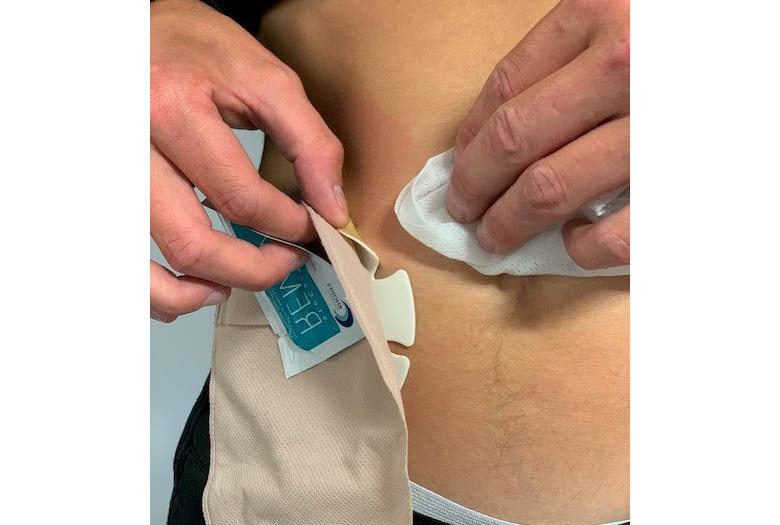Many health systems are becoming increasingly strapped for cash, leading the people in charge to look for ways to improve cost-effectiveness across the board. The aim is usually to reduce the gap between what patients need and what services can afford to provide. However, more and more, this means that health service providers are being expected to cut costs and demonstrate how much they have saved.
Spending big
Stoma care services are, quite rightly, no exception to this. In England from 2015 to 2018, the amount that the NHS spent on prescriptions was reduced by 4.7%. However, in the same period, the amount spent on stoma-specific prescriptions rose by over 16%, to a staggering £322 million per year.
One noticeable thing contributing to this growing financial burden on the NHS is the ever-increasing spend on stoma accessories. Stoma accessories refer to all stoma care products that are not the pouches (also known as bags or appliances). There are many types of stoma accessories designed to resolve different stoma care issues, and these are summarised in the table below.
Smart savings
Stoma accessories can be essential, making a major difference to an ostomate’s comfort and confidence, in which case they are worth every penny. Every ostomate has different needs, and it is important that they receive the necessary products to care for their stoma work . However, when it comes to accessories, there are many areas where savings can be made without compromising on the quality of care.
It is not only the nurses, doctors and other health professionals who suggest and prescribe stoma care products who can help. As a person with a stoma (or their family member and/or carer), you also have an important role to play in safe, sensible and cost-effective accessory use. Items that you may get on prescription for free or at a small cost always have a cost to the health service, and every penny spent on an unnecessary, inappropriate or incorrect product is another penny that could have been used more effectively in another part of the service.
Stoma care accessories |
||
|
Accessory |
What it is for |
How to gain potential savings |
|
Adhesive remover (wipes, sprays) |
To loosen adhesive to remove pouch without damaging skin |
Use sparingly and allow time to work; reduce frequency of changes |
|
Deodorants (drops, sachets, sprays) |
To neutralise unpleasant smells from the stoma’s output or wind |
Adjust diet, improve seal, change pouch filter, consider shop-bought air-fresheners or mints |
|
Fillers (pastes, gels) |
To fill dips in skin to create a flat surface to attach pouch to |
Change to a more appropriate pouch |
|
Flange extenders (strips, tapes) |
To extend adhesive area of pouch to help it stay in place |
Treat causes of poor adhesion (poor fit or seal); change pouch |
|
Seals (washers, rings, discs) |
To secure the seal around the stoma to reduce the chance of pouch leaks |
Treat causes of leakage, such as poor fit or seal; try changing pouch |
|
Garments (belts, girdles, underwear) |
To support abdominal muscles to reduce chance or severity of a parastomal hernia |
Use more supportive garments (level 2 or 3); lose weight; stop smoking; abdominal exercises |
|
Skin barriers (creams, sprays, wipes) |
To form a film to protect peristomal skin from contact with the stoma’s output |
Adjust pouch to achieve better fit and seal, preventing output from reaching the skin |
|
Solidifying agents (sachets, capsules) |
To thicken the output of a high‑output ileostomy |
Adjust diet to thicken output |
The right stuff
Avoiding discomfort, leaks or other stoma-related problems requires the use of the right products for each individual person and their stoma. It is common to respond to stoma care challenges by adding accessories. This can often solve the problem, but it makes the stoma care procedure a more complex process and significantly increases the cost of a prescription.
Often, the most effective, efficient and cost-effective solution is to review the pouch itself to identify one that is better suited to the individual ostomate’s needs. The number one goal of the review is to make looking after the stoma as simple and effective as possible, so that the stoma has as minimal an impact on physical and psychological wellbeing and quality of life as possible. Even with a challenging stoma, the perfect pouch might be the only product someone needs for safety, comfort and confidence.
Finding the right pouch doesn’t just simplify the stoma care routine; it will also save money. For example, flange extenders and filler pastes are often used to adapt an unsuitable pouch and cost the NHS £9.7 million and £17.1 million in 2018, respectively. By finding the right pouch that doesn’t need such adaptation, time and money could be saved. Likewise, barrier sprays, creams and wipes cost the NHS over £33.3 million in 2018. However, they are also often unnecessary as most modern pouches are able effectively protect the skin by themselves, so long as a suitably sized hole is used.

Adhesive removers need time to work
Just enough
Once you find the right product, it is important that it is used correctly and efficiently. For example, adhesive remover sprays, which cost the NHS £19.5 million in 2018, can help to prevent skin stripping during pouch removal. However, although two or three sprays are usually sufficient to remove a pouch, they are often sprayed continuously or excessively during pouch removal. By allowing a few seconds for the spray to work, you can reduce the amount used without impacting on its effectiveness.
Hundreds of thousands of pounds worth of stoma care products are wasted every year in the UK. Sensible ordering of products can reduce this wastage. There are many companies that offer a home delivery service, and these can be used to ensure regular delivery of your products, removing the need to stockpile. Once a product has been dispensed to you, it cannot be returned, so, if you change a product or stop using one, any stock that you have is wasted. By thinking about what you need on a month-by-month basis and only ordering what is needed, you can help cut the cost of wasted products so that the NHS can use these funds elsewhere. Many pouches and accessories have a limited shelf life and may become less effective and cause you additional problems if used after this time. Think about how necessary each product is. Would you spend your own money to buy the products in such quantities if they weren’t available on prescription?
NHS formularies |
|
In parts of the UK, the NHS uses accessory formularies to restrict the choice of products available on prescription. In many cases, these have been developed through collaboration between commissioners, stoma care nurses and ostomates and include the most clinically and cost-effective products. You could ask your prescriber if there is a more cost-effective alternative to your accessory products. At the time of writing, only stoma care accessories are included in the formularies; however, if we are not able to control the increase in spend, this could be extended to pouches in the future. |
Checking in
There are many different stoma care product manufacturers, with a large range of products available. Stoma care nurses have the expert skills and knowledge to assess your stoma and suggest the most appropriate products for you to try from this broad range. Therefore, product decisions should be made in partnership with a stoma care specialist. The combination of their specialist knowledge and your experience of life with your stoma can help you identify the products best suited to meet your needs, making sure the products you are using are the most clinically effective, which will also ensure they are the most cost-effective.
It is recommended that all ostomates have regular check-ups with a stoma care specialist, with appointments at least once a year. Changes to your skin, stoma and available products on the market may mean that the best products for you last year are not the same as the best ones for you now,
Some ostomates have gone many years, even decades, without seeing a stoma care nurse. Some manage well, but many others are living with uncomfortable, painful or embarrassing problems, such as persistent leaks and/or sore skin, which negatively affect their health and quality of life. These problems should not be accepted as normal and, in the vast majority of cases, there will be a solution available if help is sought. Regular stoma care assessment can improve your quality of life by identifying and fixing problems, such as improving skin health or allowing the pouch to stay on longer, and that will inevitably also make long-term savings.

Adhesive removers need time to work
Making a difference
We all need to do our bit. Everyone involved in stoma care in the UK can aim to reduce the cost of stoma care prescriptions by 4.7%, the same as has been achieved with all other prescriptions. If this were accomplished, the NHS would be over £15 million better off per year. To put this into perspective, it would be enough to employ over 200 GPs or treat 4500 early-stage colon cancers.
By working with your stoma care nurse to find the most clinically and cost effective approach to your stoma care routine, you can help reduce stoma care’s financial burden on the NHS and free up much-needed money for other vitally important resources and services. Remember, the primary goal of the stoma care nurse is to help you achieve as healthy and fulfilling life as possible. Helping you to select the most appropriate products is one way of doing this that will also help the NHS to save money at the same time.
Andrew Bird is a Stoma Care Nurse and the Clinical Lead at Connect Prescription Services for Fittleworth Medical
andrew.bird@fittleworth.com

